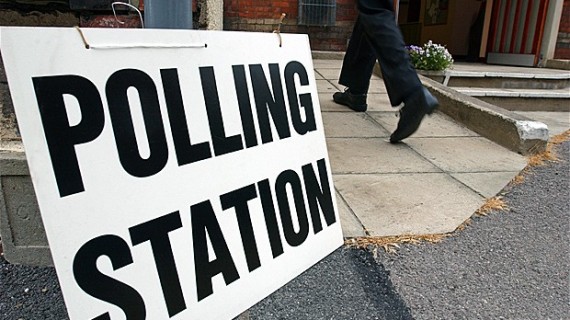Election ’17: University experts have their say
24 May 2017
With the UK general election taking place on 8 June and the new government tasked with negotiating Britain’s exit from the European Union, experts at Cardiff’s Wales Governance Centre have been assessing the polls, policies and politics at the heart of the debate.
On 17 May, Professor Roger Scully delivered the pre-election briefing – an overview of historic voting patterns in Wales, the respective parties’ performances in 2015 and public opinion around a number of policy issues with reference to the upcoming ballot. You can view the full thirty minute video here.
At that time, much of the local coverage had focused on the apparent erosion of Labour support in their traditional Welsh strongholds. However, a dramatic resurgence in the Welsh Political Barometer Poll (22 May) has Professor Scully explaining in the New Statesman why the dominant party of the last century “is not about to go gently into that good night”.
He also ruminates on the “almost unbelievably” low numbers attained by the Liberal Democrats (6%, lower than they polled in the disastrous 2015 election) and Plaid Cymru’s struggle to turn the UK-wide platform of a television debate into consistent public support – they stand at 9%.
Finally, Professor Scully considers the Conservatives’ likely attempt to pitch the election as a straight choice between Theresa May and Jeremy Corbyn for the premiership – “even in Wales, this contrast does not play well for Labour” – whilst reminding us of the pundits’ refrain: “this is only one poll”.
Elsewhere, on The Conversation, Dr Stephen Cushion looks at media coverage of the election, including how broadcast news and its reliance on vox pops have distorted public opinion and sought to focus on the character of respective leaders over manifesto pledges.
He goes on to emphasise the relative absence of detailed opinion polling in mainstream media coverage, and suggests that – even in the face of unprecedented inaccuracies in 2015 – they could be used “more imaginatively” to allow a greater degree of debate on issues of policy.
Finally, Professor Richard Wyn Jones reflects on the leadership of former First Minister of Wales, Rhodri Morgan (Hon 2001), who passed away in May at the age of 77.
- April 2024
- March 2024
- February 2024
- January 2024
- December 2023
- November 2023
- October 2023
- September 2023
- August 2023
- July 2023
- June 2023
- May 2023
- April 2023
- March 2023
- February 2023
- January 2023
- November 2022
- October 2022
- September 2022
- August 2022
- July 2022
- June 2022
- May 2022
- April 2022
- March 2022
- February 2022
- January 2022
- December 2021
- November 2021
- October 2021
- September 2021
- August 2021
- July 2021
- June 2021
- May 2021
- April 2021
- March 2021
- February 2021
- January 2021
- December 2020
- November 2020
- October 2020
- September 2020
- August 2020
- July 2020
- June 2020
- May 2020
- April 2020
- March 2020
- January 2020
- December 2019
- November 2019
- October 2019
- September 2019
- August 2019
- July 2019
- May 2019
- April 2019
- March 2019
- February 2019
- January 2019
- December 2018
- November 2018
- October 2018
- September 2018
- August 2018
- July 2018
- June 2018
- May 2018
- April 2018
- March 2018
- February 2018
- December 2017
- November 2017
- October 2017
- September 2017
- August 2017
- July 2017
- June 2017
- May 2017
- April 2017
- March 2017
- February 2017
- January 2017
- November 2016
- October 2016
- September 2016
- July 2016
- June 2016
- May 2016
- April 2016
- March 2016
- February 2016
- January 2016
- December 2015
- November 2015
- October 2015
- September 2015
- August 2015
- January 2015
- December 2014
- November 2014
- September 2014
- August 2014
- May 2014